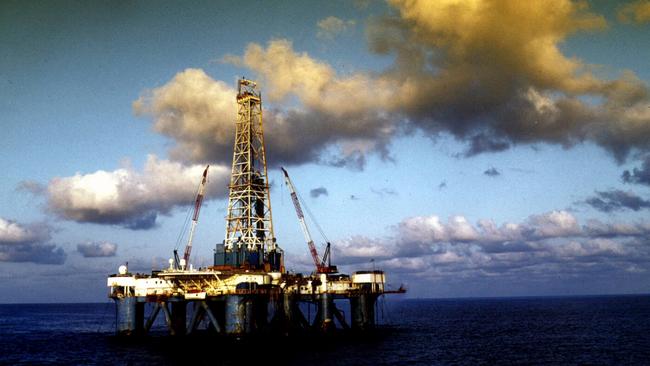Stakes rise in ageing oil, gas infrastructure as $50bn clean-up bill looms

Oil Search has a new CEO in Kieran Wulff; and at Santos, CEO Kevin Gallagher has been handcuffed to stay on with a handsome $6m incentive this week. In the west, the intrigue over just who will become Woodside CEO continues with internal candidate Meg O’Neill appointed acting CEO from next week.
All this CEO buzz has overshadowed one government announcement that will have a far-reaching impact on the sector.
On Friday federal Resources Minister Keith Pitt approved tough new measures on how the industry’s huge offshore oil and gas infrastructure will be decommissioned.
There is an estimated $50bn of decommissioning work to be done, half of that to be started within a decade. And the government wants to ensure the taxpayer does not end up with the bill.
However, oil and gas players say if not done right, the legislation will hurt investment, make late-in-life asset sales almost impossible and even send some smaller operators to the wall.
In the past six months America’s ExxonMobil has reversed a $3bn decision to sell its old Bass Strait assets and Italy’s ENI suspended the sale of its assets off northern Australia in January.
At issue are the proposed new trailing liability rules for decommissioning of old assets. They allow the government to hold the previous owners of the oil or gas projects to account for decommissioning work.
Andrew McConville, who runs industry peak body APPEA, says he has made it clear to the government that his members do not support trailing liability. “No industry responds well to uncertainty. It runs the risk of impacting on investment incentives and the further development of the industry. You are making former titleholders liable for the actions of subsequent titleholders and they can’t control the future maintenance practices or other operational decisions of that operator.
“You can run the risk of creating perverse incentives for an operator that says, I’m not going to pay due attention to my decommissioning liability because others can be called back. That creates an environment where you could get ill-equipped operators in the market and no one wins out of that.”
The government, however, is still reeling from the Northern Endeavour fiasco which has left the Australian taxpayer footing a decommissioning bill of up to $200m. The old floating production, storage and offtake vessel is still moored in 400m of water in the Timor Sea. In 2016, Woodside sold the Northern Endeavour along with some fields to the unknown Northern Oil and Gas Group, but in 2020 NOGA was forced into liquidation after the safety regulator shut down operations. It had no funds to pay for decommissioning.
APPEA argues the solution is not trailing liability but a more robust system to make sure operators have the financial capacity for decommissioning and can demonstrate that to the government. Financial assurance could come from a big balance sheet, or insurance bonds or bank guarantees.
Trailing liability is used overseas, including in Britain where decommissioning in the North Sea is well under way. The difference, says McConville, is that there are also strong models of financial assurance operating. “If you get that right then trading liability becomes an absolute last resort and you can minimise the impact that it has on investment incentives.”
Mr McConville warns that the bill as currently drafted is expanding existing powers to call back previous titleholders. “Even after all the decommissioning has been completed in accordance with environmental plans and all the commitment done, the asset surrendered, there is a still a level of uncertainty there that an operator that has met all of its requirement could be called back.”
Over the years, national regulation for offshore petroleum has expanded from a focus on health and safety to cover the environment and now financial regulation. The draft bill also proposes a new low 20 per cent threshold for regulator approval in any change of ownership or control of a titleholder.
Make no mistake, this new legislation could make a quantum difference to an oil and gas producer’s bottom line and to future shareholder returns. Decommissioning notes from top law firms to their clients are being fired off this week.
The exposure draft decommissioning bill is open for comment until April 23.



Investor attention turns to the gas sector on Thursday when two top 50 ASX-listed oil and gas businesses, Oil Search and Santos host AGMs.